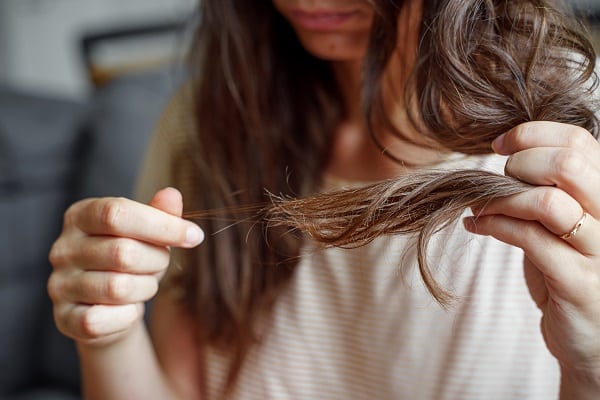Menopause is a natural process that all women go through, but it can still be a bit of a mystery to many. What are the symptoms? What should you expect? How will your life change? This blog post will answer some of the most common questions about menopause. It will also provide some tips for making the transition as smooth as possible. So if you are approaching menopause or are currently in the midst of it, read on for information and support!
What Is Menopause?
Menopause is a natural biological process that occurs when a woman’s ovaries stop producing eggs. This typically happens around the age of 50, but it can occur earlier or later in life. This process marks the end of a woman’s reproductive years and menstrual cycles. The actual biological changes of menopause can take several years, but the transition is often referred to as “the menopausal transition.”
Hot Flashes

During menopause, the levels of the hormones estrogen and progesterone decline. This hormone imbalance can cause a variety of symptoms, including hot flashes. Hot flashes are a sudden feeling of warmth that spreads over the body, and a flush or redness on the skin often accompanies it. They can last from a few seconds to several minutes and are most common during menopause. Although hot flashes are not dangerous, they can be highly unpleasant. Luckily, some things can help relieve the symptoms, such as wearing cool, loose-fitting clothing and avoiding trigger foods and beverages. Menopause is a normal part of aging, but that doesn’t mean it has to be uncomfortable.
Night Sweats

Night sweats are another common symptom of menopause. They are periods of intense sweating that often occur at night and can cause insomnia and anxiety. While the exact cause of night sweats is unknown, they are believed to be caused by hormonal changes. Menopause occurs when a woman’s ovaries stop producing eggs, and her body produces less estrogen. This hormonal imbalance can trigger hot flashes and night sweats. Talk to your doctor about treatment options if you’re experiencing menopausal symptoms like night sweats. There are several effective treatments available that can help to reduce or eliminate menopausal symptoms.
Weight Gain

Many women also experience weight gain during menopause, and there are a few different reasons why this may happen. Changes in hormone levels can lead to increased appetite and cravings and a slowdown in metabolism. In addition, menopause can also cause changes in body composition, with more fat around the waist. This shift in body shape is due to decreased estrogen, which can also lead to water retention. Fortunately, there are a few things that menopausal women can do to combat weight gain. Regular exercise and eating a healthy diet can help to offset some of the hormonal changes that occur during this time. In addition, medications such as birth control pills can help to regulate hormone levels and reduce some of the symptoms associated with menopause.
Thinning Hair

As women enter menopause, they may start to notice changes in their hair. One of the most common is thinning hair. This can occur because of hormonal changes during menopause—specifically, levels of the hormone estrogen decline, which can lead to hair loss. In addition, menopause can also cause changes in the scalp, making it drier and less able to support healthy hair growth. These changes can be particularly frustrating for women who have always had thick, lustrous hair. However, there are treatments available that can help to reduce hair loss and promote new hair growth. Talk to your doctor about your options so you can find the best solution for you.
Irregular Periods

For many women, irregular periods are one of the first signs that menopause is on the horizon. As hormone levels begin to fluctuate, the length and frequency of menstrual cycles can become erratic. In some cases, periods may stop entirely for months or even years at a time. While irregular periods can be frustrating and inconvenient, they are also perfectly natural and generally nothing to be concerned about. In fact, for many women, menopause is a liberating experience that marks the end of a long and often difficult chapter in their lives. With irregular periods comes a newfound sense of freedom and autonomy, not to mention the relief of no longer worrying about contraception. So while it may not be ideal, an irregular period is often just a sign that nature is taking its course.
Treatment Options For Menopause

While there is no cure for menopause, treatments can help ease the symptoms and make the transition more manageable. For example, hormone therapy, also known as hormone replacement therapy, can help to balance out fluctuating hormone levels and reduce hot flashes and night sweats. Other options include antidepressant medications and lifestyle changes such as regular exercise and stress management techniques. It’s important to discuss your treatment options with your doctor so that you can make an informed decision about what is best for your individual needs and health. Menopause is a natural part of aging, but that doesn’t mean you have to suffer through it without support. Talk to your healthcare provider about the options available to you so that you can navigate this new phase in your life with grace and ease.
Common Questions About Menopause
- How long does menopause last?
Menopause technically lasts one year after a woman’s last period. However, the effects and symptoms can begin several years before that and may continue for some time afterward.
- Can women still get pregnant during menopause?
While it is less likely, it is still possible for women to become pregnant during menopause. As hormone levels fluctuate, periods may become irregular or even stop entirely, but this does not mean that a woman cannot conceive. It’s important to continue using contraception until you have officially reached menopause and haven’t had a period for one full year.
- Is menopause the same for all women?
Every woman experiences menopause differently. Some may have mild symptoms, while others may experience more severe ones. It’s also important to remember that there is no right or wrong way to go through menopause – each woman’s journey is unique and valid.
- Can menopause be delayed or prevented?
No, menopause is a natural part of aging and cannot be delayed or prevented. However, specific medical treatments, such as chemotherapy, can induce early menopause. Therefore, it’s important to talk to your doctor about any concerns or questions you may have about menopause.
Stay Informed About The Transition Of Menopause!
Menopause marks a significant milestone in a woman’s life, and it’s crucial to arm yourself with knowledge about what to expect. Remember that menopause is a natural process, and there are treatment options available to help ease any discomfort. Don’t hesitate to talk to your healthcare provider about your journey through menopause and the steps you can take to make it a positive experience. It is okay to have questions and concerns – staying informed and taking care of yourself during this transition is essential.


